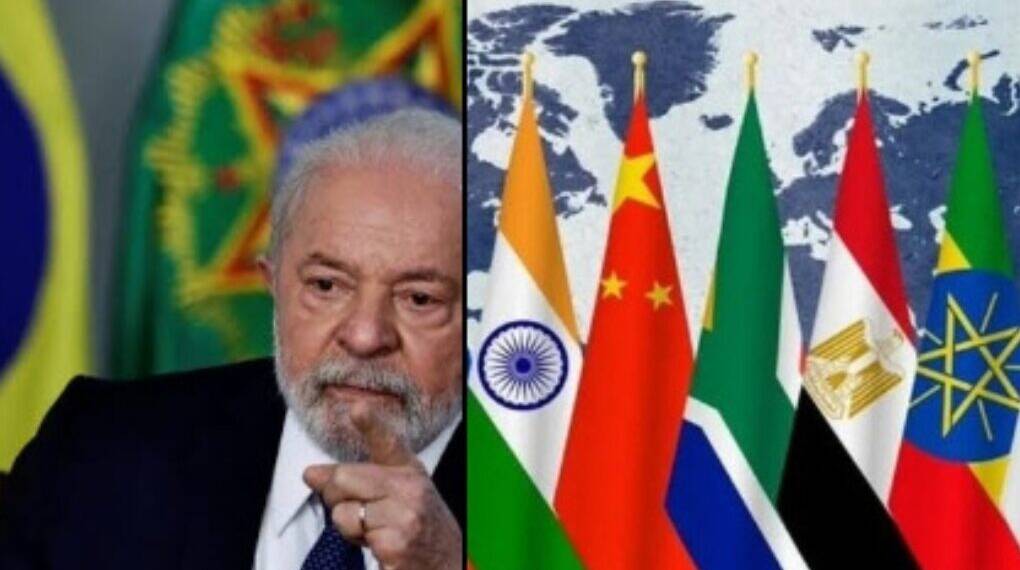A brewing trade war between the United States and Brazil has shaken global commodity markets and inflamed political tensions, after former U.S. President Donald Trump announced a 50% tariff on Brazilian imports in retaliation for what he called a “witch hunt” against ex-President Jair Bolsonaro.
The move, unveiled via a letter on Trump’s Truth Social platform late Wednesday (July 9), accused Brazil’s government of violating free speech and targeting Bolsonaro through politically motivated prosecutions. The tariff, set to take effect on August 1, has already rattled global markets, most notably sending Arabica coffee futures soaring by more than 3.5% on the New York exchange Thursday morning.
“Your coffee just got more expensive,” one analyst said, describing Trump’s tariff threats as a flashpoint with direct consequences for U.S. consumers. Brazil is the world’s largest producer of arabica coffee, the premium bean used in most specialty blends. The U.S. is also Brazil’s second-largest trading partner, making the stakes high for both economies.
Lula Responds: “Brazil Will Not Accept Tutelage”
Brazilian President Luiz Inácio Lula da Silva responded firmly Thursday, vowing reciprocal tariffs and calling the U.S. action an affront to Brazilian sovereignty. In a post on X (formerly Twitter), Lula declared, “Brazil is a sovereign country with independent institutions. We will not accept any tutelage or external interference.” He also challenged Trump’s assertion of a U.S. trade deficit with Brazil, citing official U.S. government data showing a $7.4 billion trade surplus in 2024.
The Brazilian leader accused Trump of exploiting the legal proceedings against Bolsonaro—who is currently on trial for allegedly attempting a coup following his 2022 election loss—for political gain. “We reject hate speech and attacks on democracy,” Lula wrote, defending Brazilian court actions against social media accounts linked to misinformation.
Industry Backlash and Global Ramifications
The reaction from the global coffee industry was swift. Traders warned that Trump’s announcement had sent “shockwaves across the coffee industry.” With Brazil being a crucial supplier, any disruption could push prices even higher, adding to inflationary pressures already felt by American consumers.
Giuseppe Lavazza, chairman of Italy’s Lavazza Group, warned earlier this week about the risks of trade conflicts involving top producers like Brazil and Vietnam. “Tariffs between coffee-producing countries and the U.S. will only hurt consumers,” Lavazza said.
Arabica bean prices have surged over the past two years due to poor harvests in Brazil and Vietnam, and this latest development threatens to reverse recent stability in the market. Robusta futures, another coffee benchmark, have already hit historic highs this year.
A Politicized Trade War?
While Trump’s new round of tariff threats also targeted 22 other countries—including Japan, South Korea, and Sri Lanka—Brazil stood out as the only one named in connection with internal politics and social media policies. Trump accused the Brazilian government of issuing “unlawful censorship orders” to U.S. tech companies, including Truth Social.
This marks an unusual intersection of trade policy and ideological alignment. Trump and Bolsonaro have long been allies, with both framing themselves as populist defenders against “globalist” institutions and leftist governments.
Lula’s Political Calculus
Some analysts believe Trump’s attack could backfire. “When Trump targets foreign leaders, it often boosts their popularity at home,” said Rafael Cortez, a political scientist at Tendências Consultoria. He compared the situation to past instances in Mexico, Canada, and Australia, where standing up to Trump has strengthened domestic support.
Creomar de Souza of Dharma Politics said that Lula’s ability to mount an “organized and united” response could turn the crisis into a political win, especially ahead of Brazil’s upcoming municipal elections.
The Trump-Lula trade spat is quickly evolving into a full-fledged diplomatic and economic confrontation, with everyday Americans likely to feel the impact in their wallets, starting with their morning coffee. As retaliatory tariffs loom and political tensions rise, global markets are bracing for further volatility in the weeks ahead.








